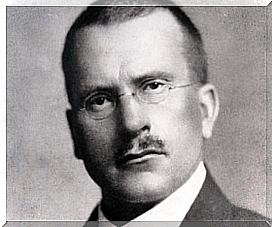6 Tips For Handling And Resolving Conflicts

Conflicts cause strong emotions, and feelings of disappointment, as well as unhappiness. When a conflict is poorly managed, it can cause resentment and irreversible ruptures.
However, when conflicts are managed in a healthy way, they build understanding as well as trust, and help to strengthen the bonds between two people.
Knowing your own feelings and emotions is fundamental to dealing with conflict adequately, in order to discover your own needs.
If a person does not know his true intentions, it will be almost impossible for him to communicate them to others, and allow the conflict to be resolved. This almost always results in trivial discussions, which do not dig into the heart of the matter to find the source of the conflict.
How to resolve a conflict?
The ability to adequately resolve a conflict depends on the ability of each party to control their stress and emotions, to pay attention to the other, and to be aware of the differences between them.
– Control your stress: if you manage to calm your stress quickly, and keep your calm, you will be able to better read and interpret the verbal and non-verbal communication of your interlocutor.
– Control his emotions and his behavior: if you are able to control your emotions, you will be able to communicate without ever threatening or intimidating your interlocutor (physically or verbally).
– Paying attention: this is the only way you can use to discover your feelings and to listen to everything the other has to say to you.
– Be aware of the differences: always be respectful of the differences that may separate you from your interlocutor. This is a great way to quickly resolve the conflict.
Advice on how to better manage a conflict
1. Pay attention and learn to listen
When we listen to someone, we develop our empathy for that person. Listening allows us to learn about what is happening. Also, the more you listen to others, the more they will listen to you in return.
2. Prioritize: Resolving Conflict Before Being Right
When a conflict arises, it is not about losing or winning. What you are looking for is maintaining the relationship to move forward. For that, it is fundamental to be respectful and to pay attention to the point of view of the other.
3. Do not hold a grudge and live in the moment
If you get stuck in resentments from the past, your ability to see reality as it really is will be greatly diminished.
If you want to move forward, you have to refocus on the present moment (on the here and now) and solve the current problem with the elements of today, without looking into the past.
4. Avoid conflict if you can
Resolving conflict can be exhausting. Do everything in your power to prevent it from happening, especially if it is a secondary topic.
5. Learn to forgive
It is impossible to resolve a conflict if you are unwilling to forgive, or are unable to forgive.
If you are not able to free yourself from the urge to take revenge on the other, you will not be able to resolve the conflict, even if you come to some sort of agreement, such as a truce.
6. Allow time to heal wounds
Sometimes a conflict cannot be resolved. In this case, try to take a step back from the situation, and truly disconnect. This will prevent the conflict from entering the sphere of your personal life.
While not always possible or advisable, it can be a great way to settle small disagreements and keep the conflict from becoming too important.








